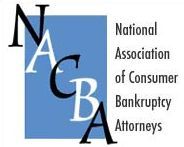Individuals may file for Chapter 7 or Chapter 13 bankruptcy
After struggling with debt, you have reached the conclusion that filing for personal bankruptcy is your only solution (short of winning the lottery). But which form of bankruptcy is right for you, Chapter 7 or Chapter 13? In Chapter 7, you don’t make payments to your creditors, and within 3 to 4 months after filing Chapter 7, your credit card and other debts are eliminated, that is, they are “discharged.” In Chapter 13, you make payments to creditors through the trustee over the course of 3 to 5 years, after which the remainder of your debts are discharged.
There are differences between Chapter 7 and Chapter 13
In Chapter 13, you get to keep what you own, regardless of how much your assets are worth. In Chapter 7, you are allowed to keep your assets only if they are not worth more than the law allows you to protect from your creditors. Chapter 7 could be risky if you think your home’s value is safe from the trustee but you aren’t sure how much it is worth. Once you have filed the Chapter 7, you don’t have an automatic right to change your mind and get out of Chapter 7 if it turns out that the trustee can sell your home for more than you can protect. In Chapter 13, you are permitted to change your mind and get out of Chapter 13 if you decide to do so, because Chapter 13 is truly a voluntary procedure.
Sometimes you don’t really have an option
You cannot qualify for Chapter 7 if your income exceeds certain limits based on the number of persons in your household. If you do not have a regular source of income, you do not qualify for Chapter 13. Qualifying for Chapter 13 is straightforward. If you have a source of regular income, whether through a job, retirement, or even Social Security, and if you can make payments in some amount, you probably qualify for Chapter 13.
You might qualify for both forms of personal bankruptcy
If so, you have an option as to which chapter to file under. Consider other factors.
Do you want the satisfaction of having made the effort to pay back as much of your debt as you could afford, under a plan that uses your future income to do so? Chapter 13 plans cannot last more than 5 years, so there is no pressure on you to keep paying for as many years as it might take to fully repay your creditors. In most cases, the debts are not fully paid, but you will have made your best effort to pay back as much as possible.
Not all debts can be discharged in bankruptcy. If you have student loan debts which cannot be discharged, but you cannot afford the required monthly payments, you might choose Chapter 13 in order to maintain bankruptcy protection against collection of those loans for 3 to 5 years, as opposed to 3 to 4 months of Chapter 7 protection.

